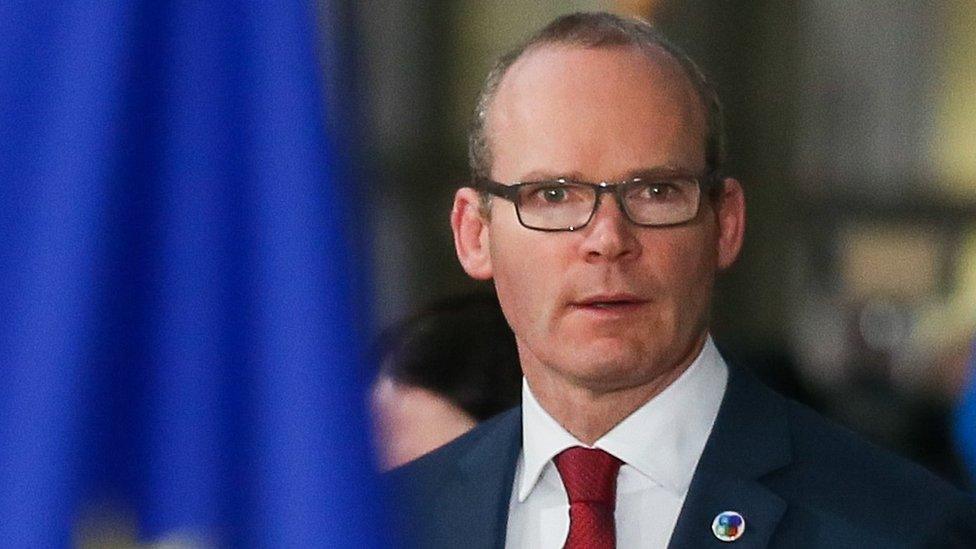Tony Blair: Brexit puts NI peace process at risk
- Published
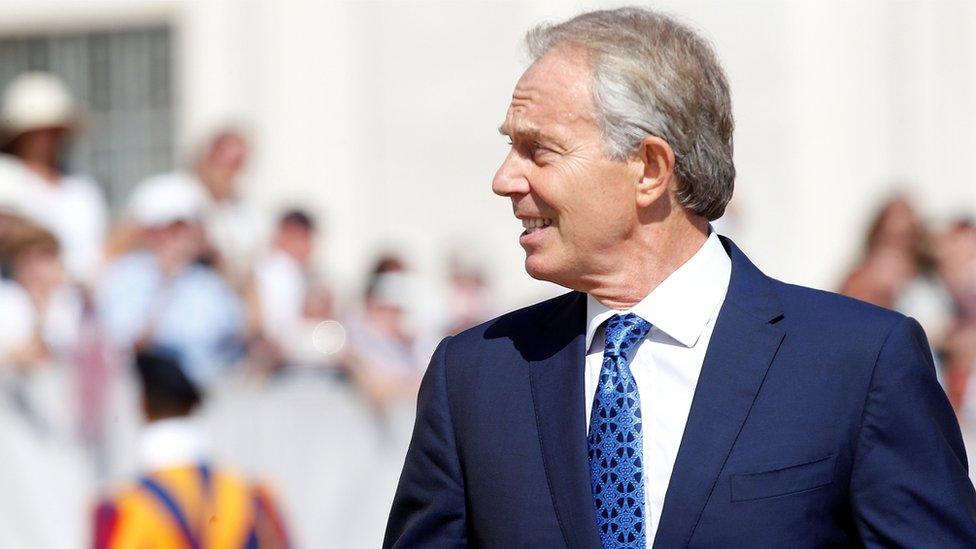
The Good Friday Agreement is "at risk because of Brexit" after the UK leaves the EU, former prime minister Tony Blair has told the BBC.
UK and Irish membership of the EU was "central" to the 1998 deal, he told BBC Radio 4's The World This Weekend.
Free movement on the border had been key to reaching an agreement, he said.
The Republic of Ireland's Tánaiste (deputy prime minister) Simon Coveney warned against a hard border becoming the "collateral damage" of Brexit.
Mr Coveney, who is also Ireland's foreign minister, told BBC One's Andrew Marr show that Northern Ireland and the Republic of Ireland were "uniquely vulnerable and exposed to a potentially bad outcome" from Brexit.
"We cannot allow some kind of collateral damage or unintended consequence of Brexit to [be] the recreation of a border on the island of Ireland," he said.
Mr Blair said the prospect of a hard border posed "real challenges" to the peace process and it was difficult to see how the issue would be resolved.
The ex-PM, who helped orchestrate the Good Friday Agreement, said that the UK and Ireland's EU membership made it "easy" to appease nationalist feelings in 1998.
The free movement of people, goods and an open border between the Republic of Ireland and Northern Ireland was "part of that expression that the island of Ireland was together", he said.
But there are concerns that Brexit could lead to a "hard border" like that seen before the Good Friday Agreement - for example, by reintroducing customs checks between the two countries.
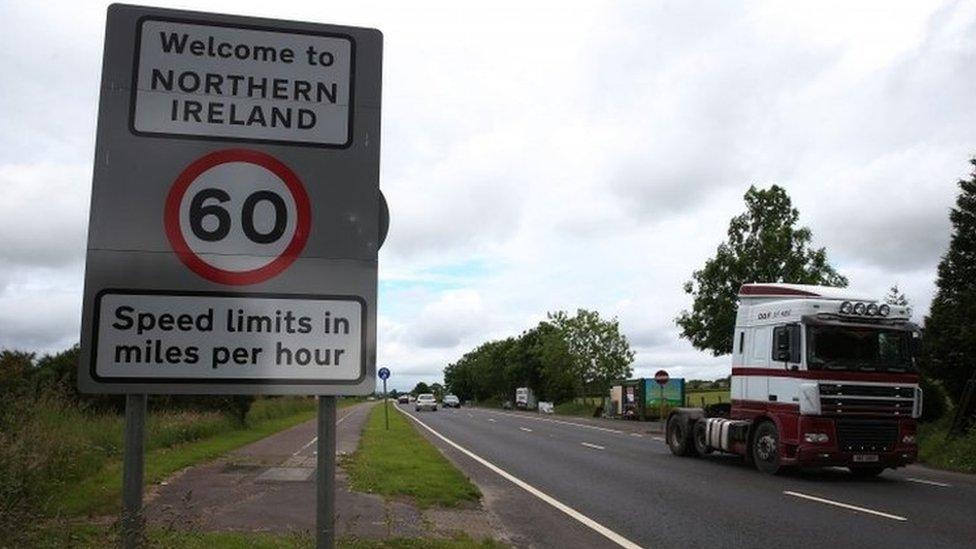
Conservative MP Jacob Rees-Mogg insisted the UK government was opposed to reintroducing a hard border - but said the Irish government or EU could make a "political choice" to impose one.
He told the BBC's Andrew Marr: "If the Irish and EU wish to impose a border that would be a matter for them, but they don't have to do it, it is a question of political choice."
Mr Blair said: "If you end up with a hard border, obviously that causes tensions.
"It doesn't mean that you should abandon the Good Friday Agreement, but it poses real challenges to it."
He urged negotiators to overcome the "conundrum" of creating a hard border between the UK and the rest of Europe, while preventing one from re-emerging between Northern Ireland and the South.
Brexit negotiators have said that the Common Travel Area between the two countries, which predates the EU, will remain in place.
'Worst of both worlds'
Mr Blair said Theresa May and Philip Hammond were trying to negotiate the "fundamentally unnegotiable" by leaving the EU, while also trying to maintain preferential treatment in the EU's common market.
"They're trying to negotiate getting out of the single market, but recreate all of its benefits," he said.
"That's not going to happen.
"The risk is, frankly, you end up with a muddle and the worst of both worlds."
'Centred on Brexit'
Mr Blair, who was speaking about housing policies proposed in a new report by the Tony Blair Institute for Global Change, external, also blamed Brexit for distracting the government from the "huge problem" of housing supply.
"The whole of the political class, as it were, is simply centred on Brexit," he said.
He proposed a series of policies designed to tackle the housing crisis - including a new "land value tax" which would see the value of underlying land taxed instead of property.
He also said there would be "no extra money" for the NHS through Brexit.
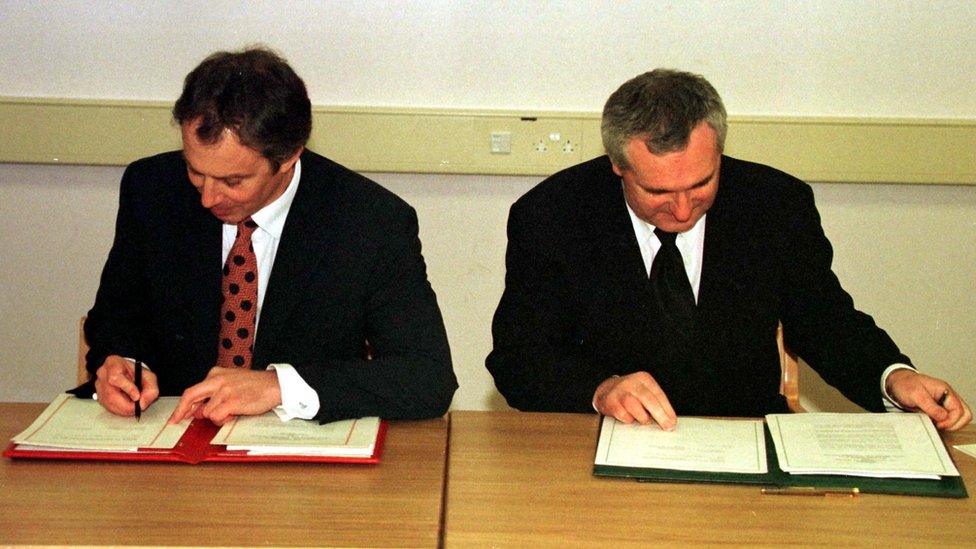
Tony Blair and the former Irish Taoiseach Bertie Ahern signing the Good Friday Agreement in 1998
However, he said Mrs May was "right" to criticise US President Donald Trump's recent tweeting of far-right videos.
He said it was the "minimum" she could have said - considering she needs to cooperate with the US.
You can hear the full interview with Tony Blair at 13:00 GMT on Radio 4's The World This Weekend.
- Published30 November 2017
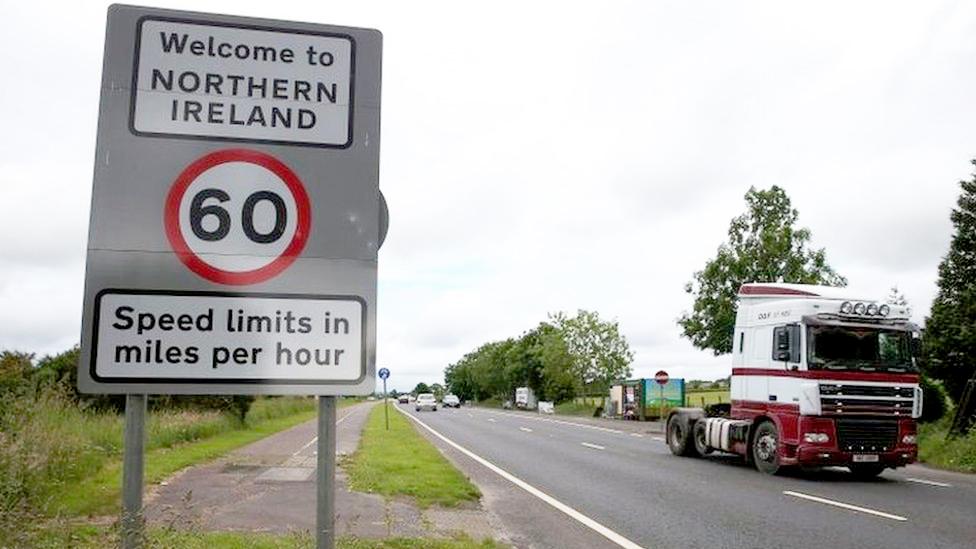
- Published29 November 2017
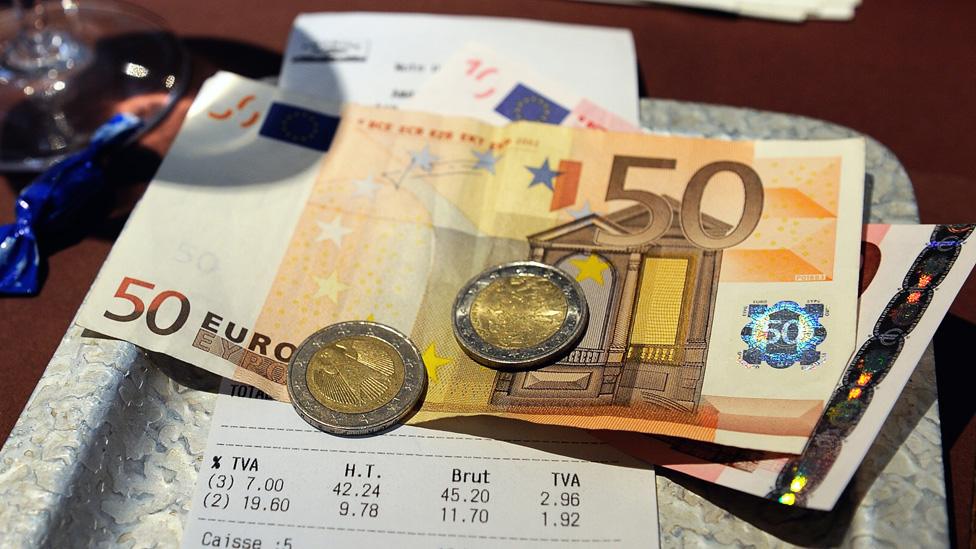
- Published15 July 2017
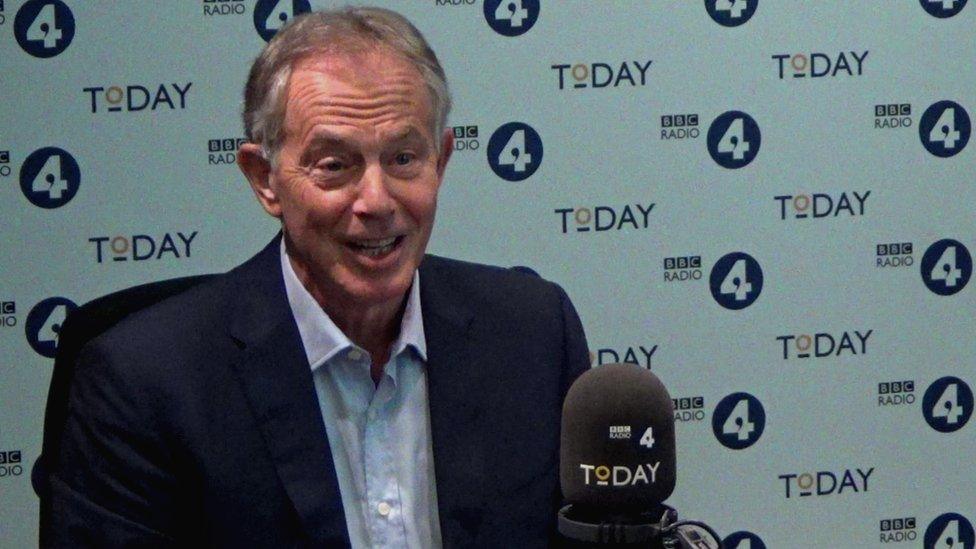
- Published3 December 2017
